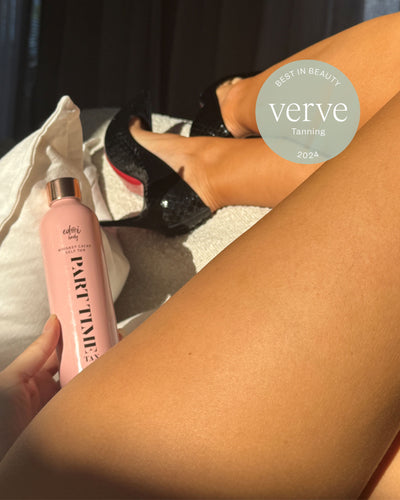Understanding Different Skin Types and How to Care for Each
Our skin is our body's largest organ, and it plays a vital role in protecting us from external elements. However, not all skin is the same, and understanding your skin type is essential for developing an effective skincare routine. From dry and sensitive, to oily and combination skin, each type requires unique care to maintain its health and radiance. In this blog, we will explore the various skin types and provide valuable tips on how to care for each of them.
Normal Skin:Normal skin is the holy grail of skin types, as it strikes a perfect balance between being not too oily and not too dry. People with normal skin generally have fine pores, a smooth texture, and a radiant complexion. To maintain its natural harmony, individuals with normal skin should follow a simple skincare routine, including:
- Cleansing twice a day with a gentle, pH-balanced cleanser.
- Applying a lightweight moisturiser to keep the skin hydrated.
- Regularly using sunscreen to protect from harmful UV rays.
- Exfoliating once or twice a week to remove dead skin cells.
Dry skin lacks proper moisture and often feels tight and rough. It may also show signs of flakiness, redness, and even itchiness. To care for dry skin, one must focus on replenishing lost moisture and strengthening the skin's barrier function:
- Use a hydrating, creamy cleanser that doesn't strip away natural oils.
- Apply a rich, emollient moisturiser regularly, especially after bathing.
- Look for skincare products with ingredients like hyaluronic acid and ceramides.
- Avoid hot showers and baths, as they can exacerbate dryness.
- Invest in a humidifier to add moisture to the air in dry environments.

Oily skin is characterised by excessive sebum production, leading to a shiny complexion and enlarged pores. People with oily skin are more prone to acne and breakouts. The key to managing oily skin is to control oil production without over-drying the skin:
- Use a foaming or gel-based cleanser to remove excess oil and impurities.
- Apply an oil-free, non-comedogenic moisturiser to maintain hydration without clogging pores.
- Incorporate products containing salicylic acid or tea tree oil to control acne.
- Avoid touching the face with dirty hands, as it can transfer bacteria and exacerbate breakouts.
- Blotting papers can be useful to manage shine throughout the day.
Combination skin is a blend of different skin types, often characterised by an oily T-zone (forehead, nose, and chin) and drier cheeks. Finding the right balance for combination skin can be challenging, but it's not impossible:
- Use a gentle cleanser that won't over-dry or irritate any specific areas.
- Apply a lightweight, oil-free moisturiser on the T-zone and a richer moisturiser on the cheeks.
- Target oily areas with oil-controlling products and acne treatments.
- Exfoliate regularly to remove dead skin cells and promote an even skin tone.
Sensitive skin is prone to irritation, redness, and allergic reactions. It requires extra care and attention to avoid triggering adverse reactions:
- Use fragrance-free, hypoallergenic skincare products.
- Perform patch tests before introducing new products to check for sensitivity.
- Avoid harsh ingredients like alcohol, retinoids, and alpha hydroxy acids.
- Always wear sunscreen with physical blockers like zinc oxide or titanium dioxide.
- Opt for a minimalistic skincare routine with mild products.
Conclusion:
Understanding your skin type is the first step in achieving healthy and radiant skin. Tailoring your skincare routine to meet the specific needs of your skin will lead to better results and a more enjoyable skincare experience. Remember to be patient and consistent with your routine, and don't be afraid to seek advice from a dermatologist if you have specific concerns. With the right care, your skin will look and feel its best, allowing you to embrace your natural beauty with confidence.








